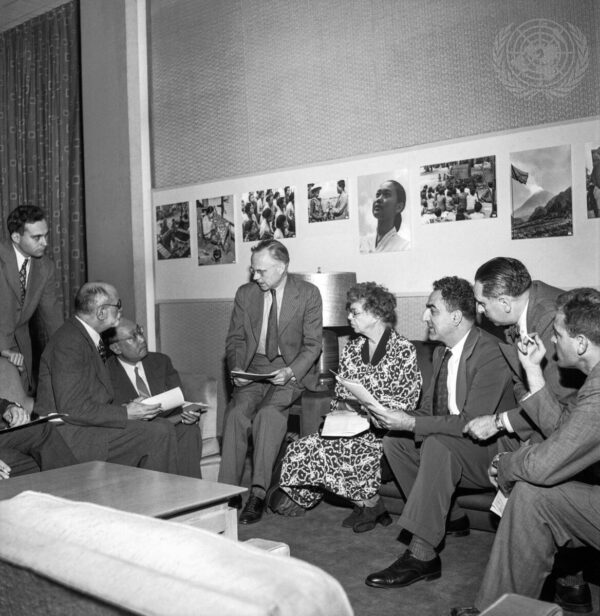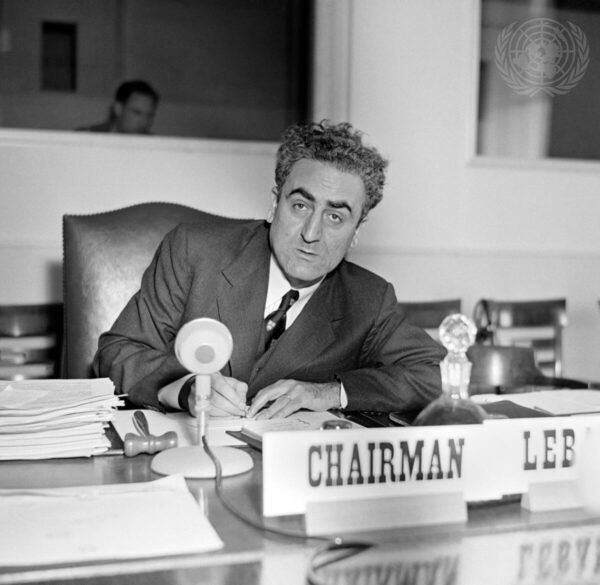
Human Rights 101: The Universal Declaration of Human Rights
In this lesson, students will learn how human rights differ from civil rights and gain introductory knowledge of how the international community united to define and defend human rights.

Born into a Greek Orthodox family in the small town of Btirram, Lebanon, Charles Malik was the second of six children. Though his father was a medical doctor, Malik was more drawn to the theoretical and, later, the philosophical. In 1927 he obtained his undergraduate degree in mathematics and physics from the American University of Beirut. In 1932 Malik began his studies in philosophy at Harvard University and completed his doctoral dissertation in 1937. He then returned to Lebanon to teach at American University of Beirut, where he established the Philosophy Department and the Civilization Studies program.
Amid World War II, Lebanon gained its independence and Malik was selected to be its representative at the United Nations. In 1947 he was selected to serve as the Rapporteur for the Commission on Human Rights. Malik utilized his philosophical expertise to craft the preamble to the Universal Declaration of Human Rights and Article 18, the right to freedom of thought, conscience, and religion. Though representing a Middle Eastern nation, Malik represented a conservative Christian viewpoint, a position that often put him at odds with Dr. P.C. Chang who firmly believed in universal values that superseded geographic, religious or political differences. During his time at the United Nations, Malik additionally served as the Human Rights Commission President, the President of the Economic and Social Council, the President of the Security Council, and ultimately the President of the United Nations General Assembly from 1958 – 1959. Dr. Charles Malik spent his remaining years as a professor in philosophy at universities around the world.
Featured in

In this lesson, students will learn how human rights differ from civil rights and gain introductory knowledge of how the international community united to define and defend human rights.